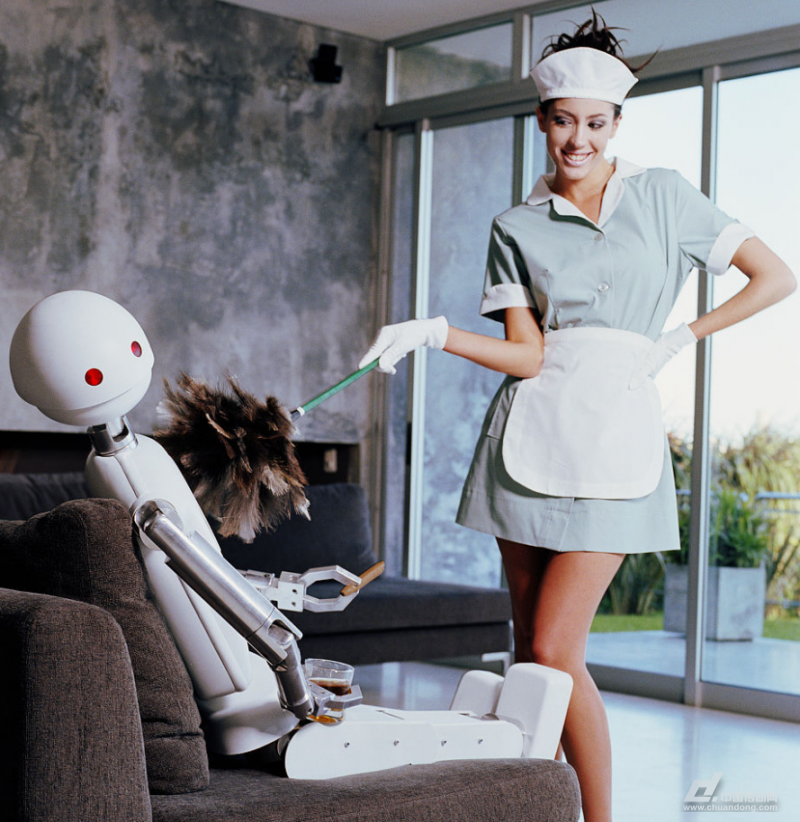
The wave of change is starting to take off. From robotic robots that are automated in unmanned workshops to home robots that can be controlled by voice and gestures, domestic robots are moving from factory to households.
The "China Robot Industry Development Report (2017)" shows that the Chinese robot market has entered a period of rapid growth, and industrial robots have become the world's largest application market for five consecutive years. According to the data from the China Robotics Industry Alliance, the market share of domestic robots has reached 33%, and the country's rate of production of high-end robots is growing fastest.
Drones, unmanned vehicles began to send courier. An e-commerce giant said that in a prefecture-level city in Jiangsu, drones shipped more than 3,000 orders in a month. At the same time, according to its calculations, the cost of each single-sale non-car express delivery is less than 1 yuan, and it will decline after it is popularized.
According to statistics, more than 20 provinces, autonomous regions, and municipalities nationwide have cultivated and promoted robots as key industries. More than 40 robotic industrial parks have been built and under construction, and robots are used in automobile manufacturing, construction machinery, and food industries. .
Robots can do more elaborate things. Like a person's arm, scoop out the food with a spoon and send it to the mouth, so that people who can't freely move their arm can easily dine—an embryonic form of a rehabilitation medical robot that the viewer praises.
Industry sources said that with the help of massive data, Chinese companies have performed well in areas such as speech recognition, language translation, and unmanned vehicles. "The robot has a dialogue function and can listen, speak, read, write, and translate. Artificial intelligence is moving into the homes of ordinary people," said Li Deyi, chairman of the China Artificial Intelligence Society.
With the popularity of robots, people's anxiety about their safety has also increased. Whether it is industrial robots or home service robots, safety standards are constantly being developed and refined.
Experts pointed out that people are always the masters of technology. At present, robots are still in the elementary stage. It is necessary to promote the vigorous development of the industry by formulating plans and establishing standards.
The person in charge of the Department of Equipment Industry of the Ministry of Industry and Information Technology stated that although the industrial development prospects are broad, the overall pattern of “small, weak, scattered†domestic robot industry has not changed, the domestic robot standards system needs to be improved, and key components’ independent innovation still needs to be broken through. .
Cai Ronghua, deputy director of the Industry Coordination Department of the National Development and Reform Commission, said that China's manufacturing industry will achieve a leap from big to strong, and industrial robots are an important choice for promoting the digitization and intelligent transformation of the manufacturing industry. At the same time, service robots can be widely used in the growing field of elderly services, medical rehabilitation, education and entertainment.
A manual pulse generator (MPG) is a device normally associated with computer numerically controlled machinery or other devices involved in positioning. It usually consists of a rotating knob that generates electrical pulses that are sent to an equipment controller. The controller will then move the piece of equipment a predetermined distance for each pulse.
The CNC handheld controller MPG Pendant with x1, x10, x100 selectable. It is equipped with our popular machined MPG unit, 4,5,6 axis and scale selector, emergency stop and reset button.
Manual Pulse Generator,Handwheel MPG CNC,Electric Pulse Generator,Signal Pulse Generator
Jilin Lander Intelligent Technology Co., Ltd , https://www.jilinlandertech.com